- Home
- Robert Jordan
The Dragon Reborn Page 7
The Dragon Reborn Read online
Page 7
CHAPTER
4
Shadows Sleeping
Cold filled the common room of the inn despite the fire blazing on the long, stone hearth. Perrin rubbed his hands before the flames, but he could get no warmth in them. There was an odd comfort in the cold, though, as if it were a shield. A shield against what, he could not think. Something murmured in the back of his mind, a dim sound only vaguely heard, scratching to get in.
“So you will give it up, then. It is the best thing for you. Come. Sit, and we will talk.”
Perrin turned to look at the speaker. The round tables scattered about the room were empty except for the lone man seated in a corner, in the shadows. The rest of the room seemed in some way hazy, almost an impression rather than a place, especially anything he was not looking at directly. He glanced back at the fire; it burned on a brick hearth, now. Somehow, none of it bothered him. It should. But he could not have said why.
The man beckoned, and Perrin walked closer to his table. A square table. The tables were square. Frowning, he reached out to finger the tabletop, but pulled his hand back. There were no lamps in that corner of the room, and despite the light elsewhere, the man and his table were almost hidden, nearly blended with the dimness.
Perrin had a feeling that he knew the man, but it was as vague as what he saw out of the corner of his eye. The fellow was in his middle years, handsome and too well dressed for a country inn, in dark, nearly black, velvets with white lace falls at his collar and cuffs. He sat stiffly, sometimes pressing a hand to his chest, as if moving hurt him. His dark eyes were fixed on Perrin’s face; they appeared like glistening points in the shadows.
“Give up what?” Perrin asked.
“That, of course.” The man nodded to the axe at Perrin’s waist. He sounded surprised, as if it were a conversation they had had before, an old argument taken up again.
Perrin had not realized the axe was there, had not felt the weight of it pulling at his belt. He ran a hand over the half-moon blade and the thick spike that balanced it. The steel felt—solid. More solid than anything else there. Maybe even more solid than he was himself. He kept his hand there, to hold onto something real.
“I have thought of it,” he said, “but I do not think I can. Not yet.” Not yet? The inn seemed to flicker, and the murmur sounded again in his head. No! The murmur faded.
“No?” The man smiled, a cold smile. “You are a blacksmith, boy. And a good one, from what I hear. Your hands were made for a hammer, not an axe. Made to make things, not to kill. Go back to that before it is too late.”
Perrin found himself nodding. “Yes. But I’m ta’veren.” He had never said that out loud before. But he knows it already. He was sure of that, though he could not say why.
For an instant the man’s smile became a grimace, but then it returned in more strength than before. A cold strength. “There are ways to change things, boy. Ways to avoid even fate. Sit, and we will talk of them.” The shadows appeared to shift and thicken, to reach out.
Perrin took a step back, keeping well in the light. “I don’t think so.”
“At least have a drink with me. To years past and years to come. Here, you will see things more clearly after.” The cup the man pushed across the table had not been there a moment before. It shone bright silver, and dark, blood-red wine filled it to the brim.
Perrin peered at the man’s face. Even to his sharp eyes, the shadows seemed to shroud the other man’s features like a Warder’s cloak. Darkness molded the man like a caress. There was something about the man’s eyes, something he thought he could remember if he tried hard enough. The murmur returned.
“No,” he said. He spoke to the soft sound inside his head, but when the man’s mouth tightened in anger, a flash of rage suppressed as soon as begun, he decided it would do for the wine as well. “I am not thirsty.”
He turned and started for the door. The fireplace was rounded river stones; a few long tables lined by benches filled the room. He suddenly wanted to be outside, anywhere away from this man.
“You will not have many chances,” the man said behind him in a hard voice. “Three threads woven together share one another’s doom. When one is cut, all are. Fate can kill you, if it does not do worse.”
Perrin felt a sudden heat against his back, rising then fading just as quickly, as if the doors of a huge smelting furnace had swung open and closed again. Startled, he turned back to the room. It was empty.
Only a dream, he thought, shivering from the cold, and with that everything shifted.
He stared into the mirror, a part of him not comprehending what he saw, another part accepting. A gilded helmet, worked like a lion’s head, sat on his head as if it belonged there. Gold leaf covered his ornately hammered breastplate, and gold-work embellished the plate and mail on his arms and legs. Only the axe at his side was plain. A voice—his own—whispered in his mind that he would take it over any other weapon, had carried it a thousand times, in a hundred battles. No! He wanted to take it off, throw it away. I can’t! There was a sound in his head, louder than a murmur, almost at the level of understanding.
“A man destined for glory.”
He spun away from the mirror and found himself staring at the most beautiful woman he had ever seen. He noticed nothing else about the room, cared to see nothing but her. Her eyes were pools of midnight, her skin creamy pale and surely softer, more smooth than her dress of white silk. When she moved toward him, his mouth went dry. He realized that every other woman he had ever seen was clumsy and ill-shaped. He shivered, and wondered why he felt cold.
“A man should grasp his destiny with both hands,” she said, smiling. It was almost enough to warm him, that smile. She was tall, less than a hand short of being able to look him in the eyes. Silver combs held hair darker than a raven’s wing. A broad belt of silver links banded a waist he could have encircled with his hands.
“Yes,” he whispered. Inside him, startlement fought with acceptance. He had no use for glory. But when she said it, he wanted nothing else. “I mean. . . .” The murmuring sound dug at his skull. “No!” It was gone, and for a moment, so was acceptance. Almost. He put a hand to his head, touched the golden helmet, took it off. “I . . . I don’t think I want this. It is not mine.”
“Don’t want it?” She laughed. “What man with blood in his veins would not want glory? As much glory as if you had sounded the Horn of Valere.”
“I don’t,” he said, though a piece of him shouted that he lied. The Horn of Valere. The Horn rang out, and the wild charge began. Death rode at his shoulder, and yet she waited ahead, too. His lover. His destroyer. “No! I am a blacksmith.”
Her smile was pitying. “Such a little thing to want. You must not listen to those who would try to turn you from your destiny. They would demean you, debase you. Destroy you. Fighting fate can only bring pain. Why choose pain, when you can have glory? When your name can be remembered alongside all the heroes of legend?”
“I am no hero.”
“You don’t know the half of what you are. Of what you can be. Come, share a cup with me, to destiny and glory.” There was a shining silver cup in her hand, filled with blood-red wine. “Drink.”
He stared at the cup, frowning. There was something . . . familiar about it. A growling chewed at his brain. “No!” He fought away from it, refusing to listen. “No!”
She held out the golden cup to him. “Drink.”
Golden? I thought the cup was. . . . It was. . . . The rest of the thought would not come. But in his confusion the sound came again, inside, gnawing, demanding to be heard. “No,” he said. “No!” He looked at the golden helmet in his hands and threw it aside. “I am a blacksmith. I am. . . .” The sound within his head fought him, struggling toward being heard. He wrapped his arms around his head to shut it out, and only shut it in. “I—am—a—man!” he shouted.
Darkness enfolded him, but her voice followed, whispering. “The night is always there, and dreams come to all men. Espe
cially you, my wildling. And I will always be in your dreams.”
Stillness.
He lowered his arms. He was back in his own coat and breeches again, sturdy and well made, if plain. Suitable garb for a blacksmith, or any country man. Yet he barely noticed them.
He stood on a low-railed bridge of stone, arching from one wide, flat-topped stone spire to another, spires that rose from depths too far for even his eyes to penetrate. The light would have been dim to any other eyes, and he could not make out from where it came. It just was. Everywhere he looked, left and right, up or down, were more bridges, more spires, and railless ramps. There seemed no end to them, no pattern. Worse, some of those ramps climbed to spire tops that had to be directly above the ones they had left. Splashing water echoed, the sound seeming to come from everywhere at once. He shivered with cold.
Suddenly, from the corner of his eye, he caught a motion, and without thinking, he crouched behind the stone railing. There was danger in being seen. He did not know why, but he knew it was true. He just knew.
Cautiously peering over the top of the rail, he sought what he had seen moving. A flash of white flickered on a distant ramp. A woman, he was sure, though he could not quite make her out. A woman in a white dress, hurrying somewhere.
On a bridge slightly below him, and much closer than the ramp where the woman had been, a man suddenly appeared, tall and dark and slender, the silver in his black hair giving him a distinguished look, his dark green coat thickly embroidered with golden leaves. Gold-work covered his belt and pouch, and gems sparkled on his dagger sheath, and golden fringe encircled his boot tops. Where had he come from?
Another man started across the bridge from the other side, his appearance as sudden as the first man’s. Black stripes ran down the puffy sleeves of his red coat, and pale lace hung thick at his collar and cuffs. His boots were so worked with silver that it was hard to see the leather. He was shorter than the man he went to meet, more stocky, with close-cropped hair as white as his lace. Age did not make him frail, though. He strode with the same arrogant strength the other man showed.
The two of them approached each other warily. Like two horse traders who know the other fellow has a spavined mare to sell, Perrin thought.
The men began to talk. Perrin strained his ears, but he could not hear so much as a murmur above the splashing echoes. Frowns, and glares, and sharp motions as if half on the point of striking. They did not trust one another. He thought they might even hate each other.
He glanced up, searching for the woman, but she was gone. When he looked back down, another man had joined the first two. And somehow, from somewhere, Perrin knew him with the vagueness of an old memory. A handsome man in his middle years, wearing nearly black velvet and white lace. An inn, Perrin thought. And something before that. Something. . . . Something a long time ago, it seemed. But the memory would not come.
The first two men stood side by side, now, made uncomfortable allies by the presence of the newcomer. He shouted at them and shook his fist, while they shifted uneasily, refusing to meet his glares. If the two hated each other, they feared him more.
His eyes, Perrin thought. What is strange about his eyes?
The tall, dark man began to argue back, slowly at first, then with increasing fervor. The white-haired man joined in, and suddenly their temporary alliance broke. All three shouted at once, each at both of the others in turn. Abruptly the man in dark velvets threw his arms wide, as if demanding an end to it. And an expanding ball of fire enveloped them, hid them, spreading out and out.
Perrin threw his arms around his head and dropped behind the stone railing, huddling there as wind buffeted him and tore at his clothes, a wind as hot as fire. A wind that was fire. Even with his eyes shut, he could see it, flame billowing across everything, flame blowing through everything. The fiery gale roared through him, too; he could feel it, burning, tugging, trying to consume him and scatter the ashes. He yelled, trying to hang onto himself, knowing it was not enough.
And between one heartbeat and the next, the wind was gone. There was no diminishing. One instant a storm of flame pummeled him; the next, utter stillness. The echoes of falling water were the only sound.
Slowly, Perrin sat up, examining himself. His clothes were unsinged and whole, his exposed skin unburned. Only the memory of heat made him believe it had happened. A memory in the mind alone; his body felt no memory of it.
Cautiously he peeked over the railing. Only a few paces of half-melted footing at either end remained of the bridge where the men had been standing. Of them, there was no sign.
A prickling in the hair on the back of his neck made him look up. On a ramp above him and to the right, a shaggy gray wolf stood looking at him.
“No!” He scrambled to his feet and ran. “This is a dream! A nightmare! I want to wake up!” He ran, and his vision blurred. The blurs shifted. A buzzing filled his ears, then faded, and as it went, the shimmering in his eyes steadied.
He shivered with the cold and knew this for a dream, certain and sure, from the first moment. He was dimly aware of some shadowy memory of dreams preceding this, but this one he knew. He had been in this place before, on previous nights, and if he understood nothing of it, he still knew it for a dream. For once, knowing changed nothing.
Huge columns of polished redstone surrounded the open space where he stood, beneath a domed ceiling fifty paces or more above his head. He and another man as big could not have encircled one of those columns with their arms. The floor was paved with great slabs of pale gray stone, hard yet worn by countless generations of feet.
And centered beneath the dome was the reason why all those feet had come to this chamber. A sword, hanging hilt down in the air, apparently without support, seemingly where anyone could reach out and take it. It revolved slowly, as if some breath of air caught it. Yet it was not really a sword. It seemed made of glass, or perhaps crystal, blade and hilt and crossguard, catching such light as there was and shattering it into a thousand glitters and flashes.
He walked toward it and put out his hand, as he had done each time before. He clearly remembered doing it. The hilt hung there in front of his face, within easy reach. A foot from the shining sword, his hand splayed out against empty air as if it had touched stone. As he had known it would. He pushed harder, but he might as well have been shoving against a wall. The sword turned and sparkled, a foot away and as far out of reach as if on the other side of an ocean.
Callandor. He was not certain whether the whisper came inside his head or out; it seemed to echo ’round the columns, as soft as the wind, everywhere at once, insistent. Callandor. Who wields me wields destiny. Take me, and begin the final journey.
He took a step back, suddenly frightened. That whisper had never come before. Four times before he had had this dream—he could remember that even now; four nights, one after the other—and this was the first time anything had changed in it.
The Twisted Ones come.
It was a different whisper, from a source he knew, and he jumped as if a Myrddraal had touched him. A wolf stood there among the columns, a mountain wolf, almost waist-high and shaggy white and gray. It stared at him intently with eyes as yellow as his own.
The Twisted Ones come.
“No,” Perrin rasped. “No! I will not let you in! I—will—not!”
He clawed his way awake and sat up in his hut, shaking with fear and cold and anger. “I will not,” he whispered hoarsely.
The Twisted Ones come.
The thought was clear in his head, but the thought was not his own.
The Twisted Ones come, brother.
CHAPTER
5
Nightmares Walking
Leaping from his bed, Perrin snatched his axe and ran outside, barefoot and wearing nothing but thin linen, heedless of the cold. The moon bathed the clouds with pale white. More than enough light for his eyes, more than enough to see the shapes slipping through the trees from all sides, shapes almost as big as Loial, but wi
th faces distorted by muzzles and beaks, half-human heads wearing horns and feathered crests, stealthy forms stalking on hooves or paws as often as booted feet.
He opened his mouth to shout warning, and suddenly the door of Moiraine’s hut burst open and Lan dashed out, sword in hand and shouting, “Trollocs! Wake, for your lives! Trollocs!” Shouts answered him as men began to tumble from their huts, garbed for sleep, which for most meant not at all, but with swords ready. With a bestial roar, the Trollocs rushed forward to be met with steel and cries of “Shienar!” and “The Dragon Reborn!”
Lan was fully clothed—Perrin would have bet the Warder had not slept—and he flung himself among the Trollocs as if his wool were armor. He seemed to dance from one to another, man and sword flowing like water or wind, and where the Warder danced, Trollocs screamed and died.
Moiraine was out in the night as well, dancing her own dance among the Trollocs. Her only apparent weapon was a switch, but where she slashed a Trolloc, a line of flame grew on its flesh. Her free hand threw fiery balls summoned from thin air, and Trollocs howled as flames consumed them, thrashing on the ground.
An entire tree burst into flame from root to crown, then another, and another. Trollocs shrieked at the sudden light, but they did not stop swinging their spiked axes and swords curved like scythes.
Abruptly Perrin saw Leya step hesitantly out of Moiraine’s cabin, halfway around the bowl from him, and all thought of anything else left him. The Tuatha’an woman pressed her back against the log wall, a hand to her throat. The light from the burning trees showed him the pain and horror, the loathing on her face as she watched the carnage.
“Hide!” Perrin shouted at her. “Get back inside and hide!” The swelling roar of fighting and dying swallowed his words. He ran toward her. “Hide, Leya! For the love of the Light, hide!”

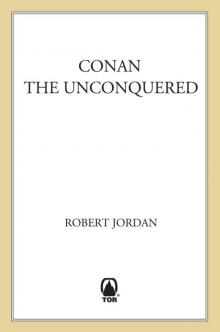 Conan the Unconquered
Conan the Unconquered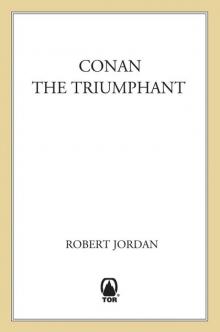 Conan the Triumphant
Conan the Triumphant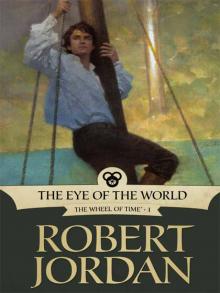 The Eye of the World
The Eye of the World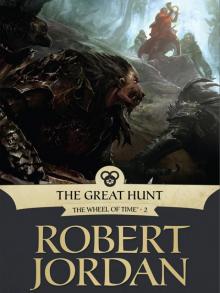 The Great Hunt
The Great Hunt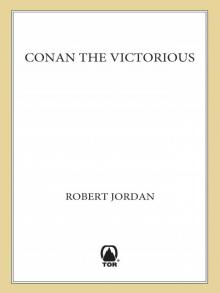 Conan the Victorious
Conan the Victorious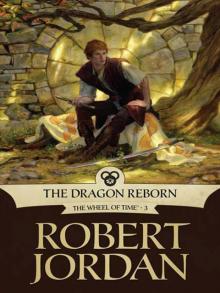 The Dragon Reborn
The Dragon Reborn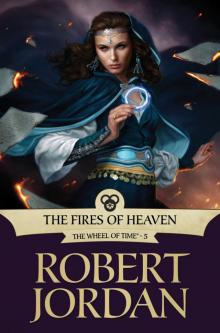 The Fires of Heaven
The Fires of Heaven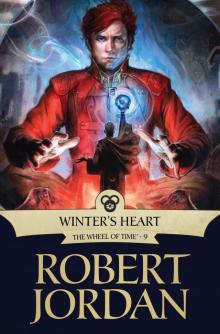 Winter's Heart
Winter's Heart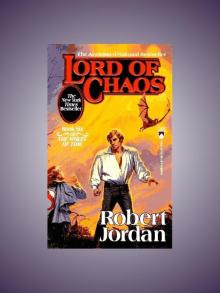 Lord of Chaos
Lord of Chaos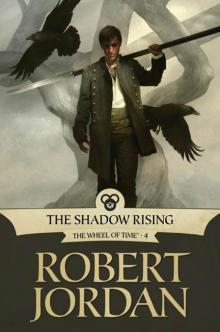 The Shadow Rising
The Shadow Rising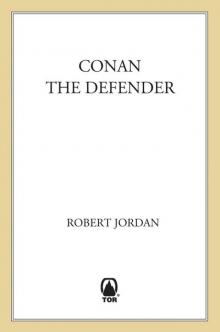 Conan the Defender
Conan the Defender The Strike at Shayol Ghul
The Strike at Shayol Ghul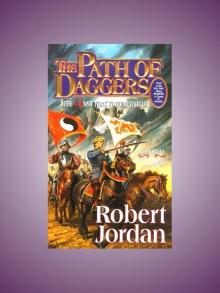 The Path of Daggers
The Path of Daggers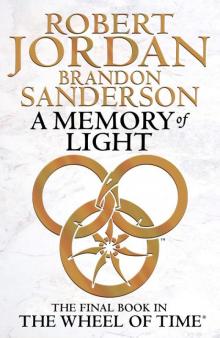 A Memory of Light
A Memory of Light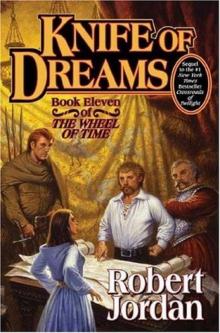 Knife of Dreams
Knife of Dreams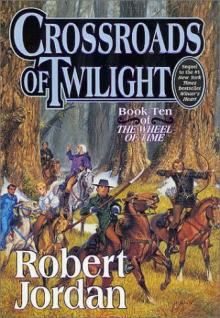 Crossroads of Twilight
Crossroads of Twilight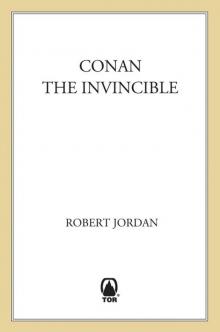 Conan the Invincible
Conan the Invincible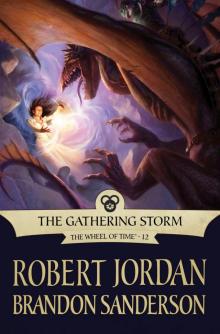 The Gathering Storm
The Gathering Storm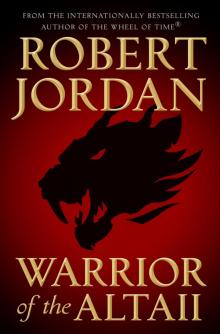 Warrior of the Altaii
Warrior of the Altaii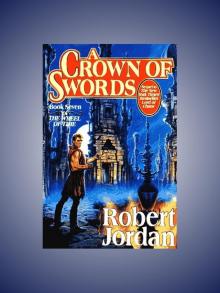 A Crown of Swords
A Crown of Swords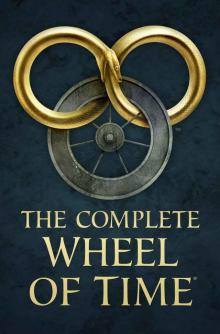 The Wheel of Time
The Wheel of Time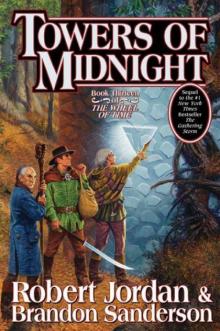 Towers of Midnight
Towers of Midnight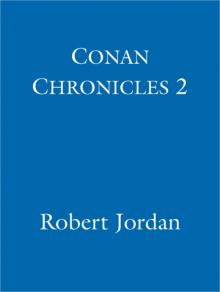 Conan Chronicles 2
Conan Chronicles 2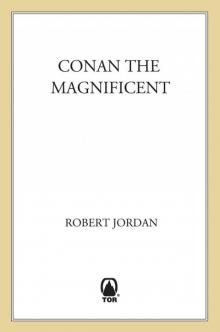 Conan the Magnificent
Conan the Magnificent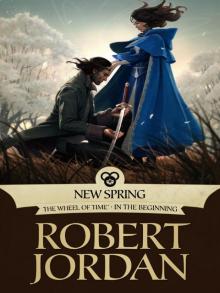 New Spring
New Spring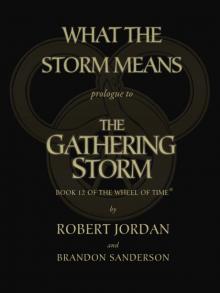 What the Storm Means
What the Storm Means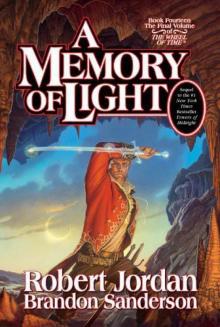 A Memory of Light twot-14
A Memory of Light twot-14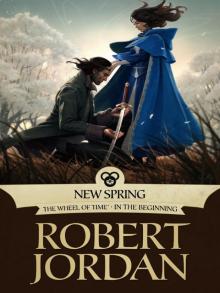 New Spring: The Novel
New Spring: The Novel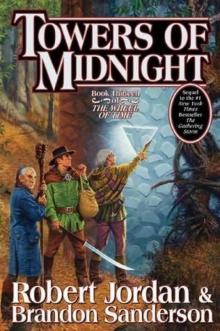 Towers of midnight wot-13
Towers of midnight wot-13 A Memory Of Light: Wheel of Time Book 14
A Memory Of Light: Wheel of Time Book 14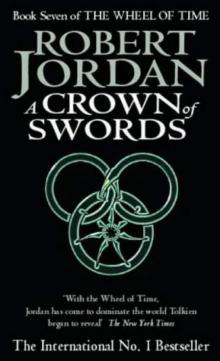 A Crown of Swords twot-7
A Crown of Swords twot-7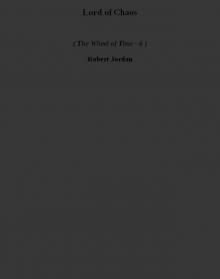 Lord of Chaos twot-6
Lord of Chaos twot-6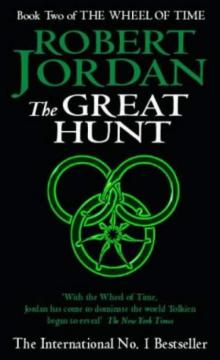 The Great Hunt twot-2
The Great Hunt twot-2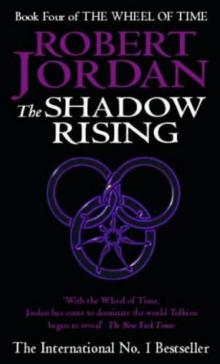 The Shadow Rising twot-4
The Shadow Rising twot-4![Wheel of Time-11] Knife of Dreams Read online](http://i1.bookreadfree.com/i1/04/03/wheel_of_time-11_knife_of_dreams_preview.jpg) Wheel of Time-11] Knife of Dreams
Wheel of Time-11] Knife of Dreams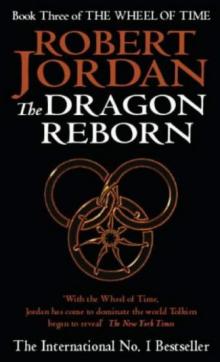 The Dragon Reborn twot-3
The Dragon Reborn twot-3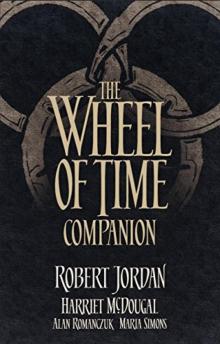 The Wheel of Time Companion
The Wheel of Time Companion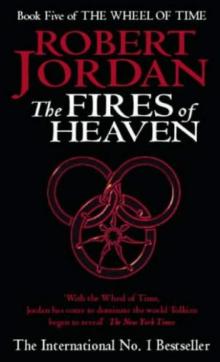 The Fires of Heaven twot-5
The Fires of Heaven twot-5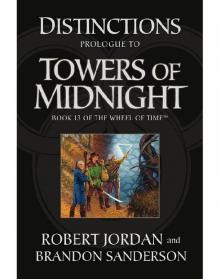 Prologue to Towers of Midnight
Prologue to Towers of Midnight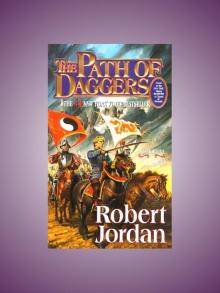 The Path of Daggers - The Wheel of Time Book 8
The Path of Daggers - The Wheel of Time Book 8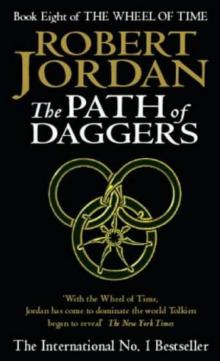 The Path of Daggers twot-8
The Path of Daggers twot-8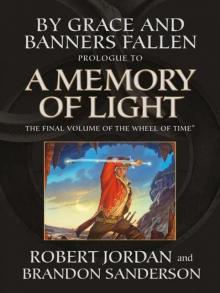 By Grace and Banners Fallen: Prologue to a Memory of Light
By Grace and Banners Fallen: Prologue to a Memory of Light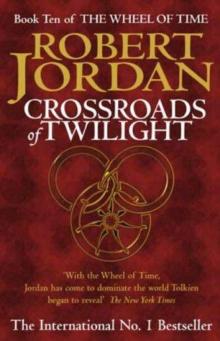 Crossroads of Twilight twot-10
Crossroads of Twilight twot-10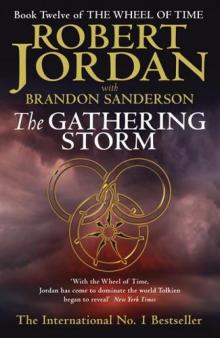 The Gathering Storm twot-12
The Gathering Storm twot-12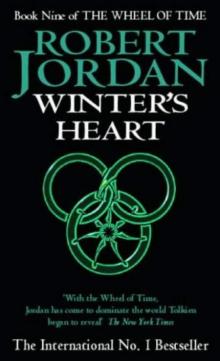 Winter's Heart twot-9
Winter's Heart twot-9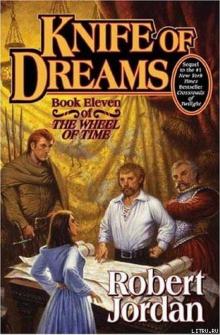 Knife of Dreams twot-11
Knife of Dreams twot-11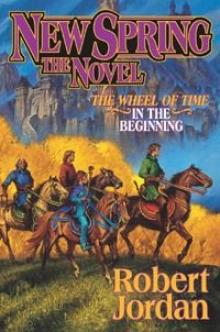 New Spring: The Novel (wheel of time)
New Spring: The Novel (wheel of time)